第24章
DOLABELLA. I wish you would; for 'tis a thankless office, To tell ill news: And I, of all your sex, Most fear displeasing you.
CLEOPATRA. Of all your sex, I soonest could forgive you, if you should.
VENTIDIUS. Most delicate advances! Women! women!
Dear, damned, inconstant sex!
CLEOPATRA. In the first place, I am to be forsaken; is't not so?
DOLABELLA. I wish I could not answer to that question.
CLEOPATRA. Then pass it o'er, because it troubles you:
I should have been more grieved another time.
Next I'm to lose my kingdom--Farewell, Egypt!
Yet, is there ary more?
DOLABELLA. Madam, I fear Your too deep sense of grief has turned your reason.
CLEOPATRA. No, no, I'm not run mad; I can bear fortune:
And love may be expelled by other love, As poisons are by poisons.
DOLABELLA. You o'erjoy me, madam, To find your griefs so moderately borne.
You've heard the worst; all are not false like him.
CLEOPATRA. No; Heaven forbid they should.
DOLABELLA. Some men are constant.
CLEOPATRA. And constancy deserves reward, that's certain.
DOLABELLA. Deserves it not; but give it leave to hope.
VENTIDIUS. I'll swear, thou hast my leave. I have enough:
But how to manage this! Well, I'll consider.
[Exit.]
DOLABELLA. I came prepared To tell you heavy news; news, which I thought Would fright the blood from your pale cheeks to hear:
But you have met it with a cheerfulness, That makes my task more easy; and my tongue, Which on another's message was employed, Would gladly speak its own.
CLEOPATRA. Hold, Dolabella.
First tell me, were you chosen by my lord?
Or sought you this employment?
DOLABELLA. He picked me out; and, as his bosom friend, He charged me with his words.
CLEOPATRA. The message then I know was tender, and each accent smooth, To mollify that rugged word, DEPART.
DOLABELLA. Oh, you mistake: He chose the harshest words;With fiery eyes, and contracted brows, He coined his face in the severest stamp;And fury shook his fabric, like an earthquake;He heaved for vent, and burst like bellowing Aetna, In sounds scarce human--"Hence away for ever, Let her begone, the blot of my renown, And bane of all my hopes!"[All the time of this speech, CLEOPATRA seems more and more concerned, till she sinks quite down.]
"Let her be driven, as far as men can think, >From man's commerce! she'll poison to the centre."CLEOPATRA. Oh, I can bear no more!
DOLABELLA. Help, help!--O wretch! O cursed, cursed wretch!
What have I done!
CHARMION. Help, chafe her temples, Iras.
IRAS. Bend, bend her forward quickly.
CHARMION. Heaven be praised, She comes again.
CLEOPATRA. Oh, let him not approach me.
Why have you brought me back to this loathed being;The abode of falsehood, violated vows, And injured love? For pity, let me go;For, if there be a place of long repose, I'm sure I want it. My disdainful lord Can never break that quiet; nor awake The sleeping soul, with hollowing in my tomb Such words as fright her hence.--Unkind, unkind!
DOLABELLA. Believe me, 'tis against myself I speak;[Kneeling.]
That sure desires belief; I injured him:
My friend ne'er spoke those words. Oh, had you seen How often he came back, and every time With something more obliging and more kind, To add to what he said; what dear farewells;How almost vanquished by his love he parted, And leaned to what unwillingly he left!
I, traitor as I was, for love of you (But what can you not do, who made me false?)I forged that lie; for whose forgiveness kneels This self-accused, self-punished criminal.
CLEOPATRA. With how much ease believe we what we wish!
Rise, Dolabella; if you have been guilty, I have contributed, and too much love Has made me guilty too.
The advance of kindness, which I made, was feigned, To call back fleeting love by jealousy;But 'twould not last. Oh, rather let me lose, Than so ignobly trifle with his heart.
DOLABELLA. I find your breast fenced round from human reach, Transparent as a rock of solid crystal;Seen through, but never pierced. My friend, my friend, What endless treasure hast thou thrown away;And scattered, like an infant, in the ocean, Vain sums of wealth, which none can gather thence!
CLEOPATRA. Could you not beg An hour's admittance to his private ear?
Like one, who wanders through long barren wilds And yet foreknows no hospitable inn Is near to succour hunger, eats his fill, Before his painful march;So would I feed a while my famished eyes Before we part; for I have far to go, If death be far, and never must return.
VENTIDIUS with OCTAVIA, behind VENTIDIUS. From hence you may discover--oh, sweet, sweet!
Would you indeed? The pretty hand in earnest?
DOLABELLA. I will, for this reward.
[Takes her hand.]
Draw it not back.
'Tis all I e'er will beg.
VENTIDIUS. They turn upon us.
OCTAVIA. What quick eyes has guilt!
VENTIDIUS. Seem not to have observed them, and go on.
[They enter.]
DOLABELLA. Saw you the emperor, Ventidius?
VENTIDIUS. No.
I sought him; but I heard that he was private, None with him but Hipparchus, his freedman.
DOLABELLA. Know you his business?
VENTIDIUS. Giving him instructions, And letters to his brother Caesar.
DOLABELLA. Well, He must be found.
[Exeunt DOLABELLA and CLEOPATRA.]
OCTAVIA. Most glorious impudence!
VENTIDIUS. She looked, methought, As she would say--Take your old man, Octavia;Thank you, I'm better here.--
Well, but what use Make we of this discovery?
OCTAVIA. Let it die.
VENTIDIUS. I pity Dolabella; but she's dangerous:
Her eyes have power beyond Thessalian charms, To draw the moon from heaven; for eloquence, The sea-green Syrens taught her voice their flattery;And, while she speaks, night steals upon the day, Unmarked of those that hear. Then she's so charming, Age buds at sight of her, and swells to youth: